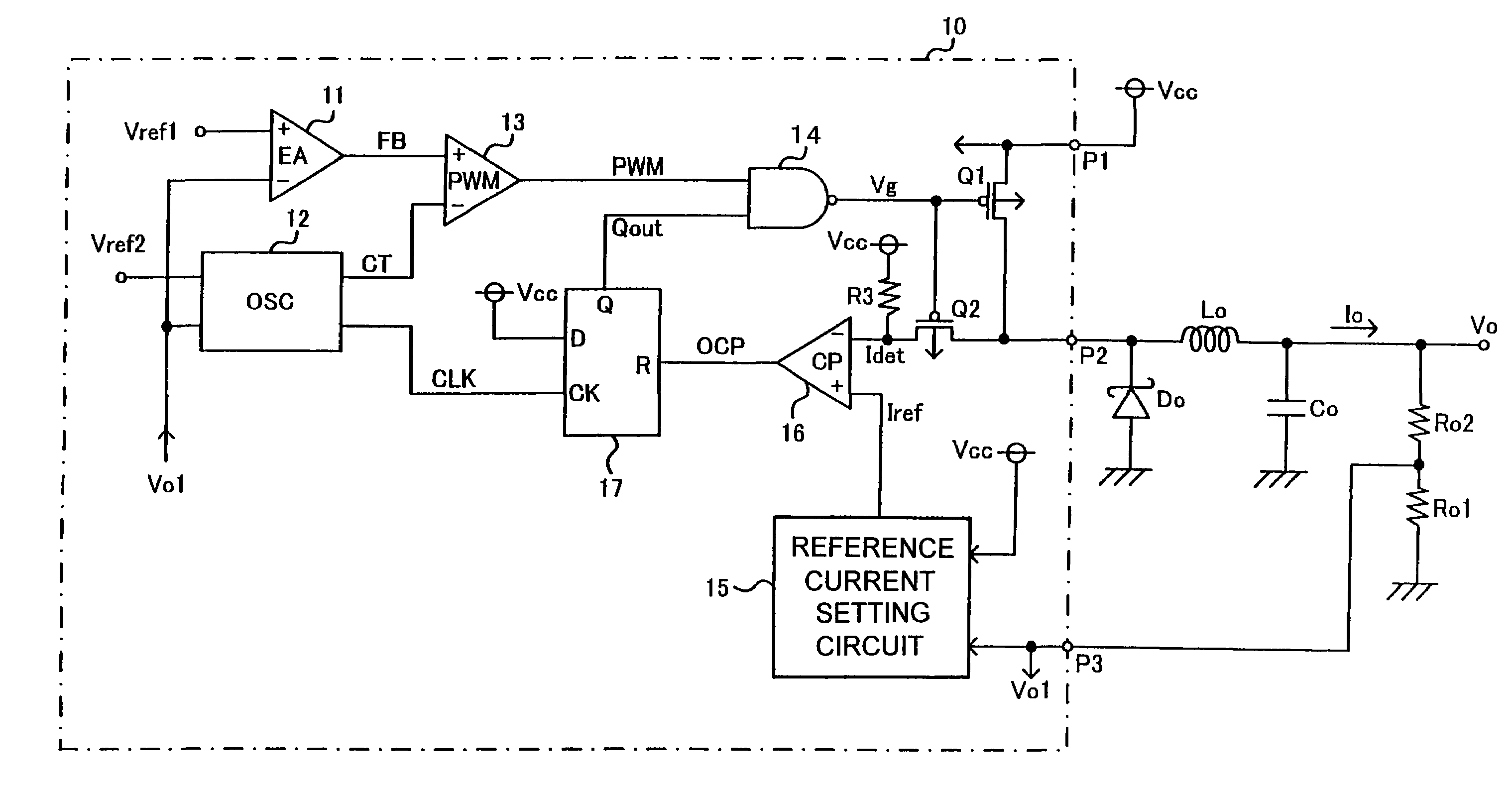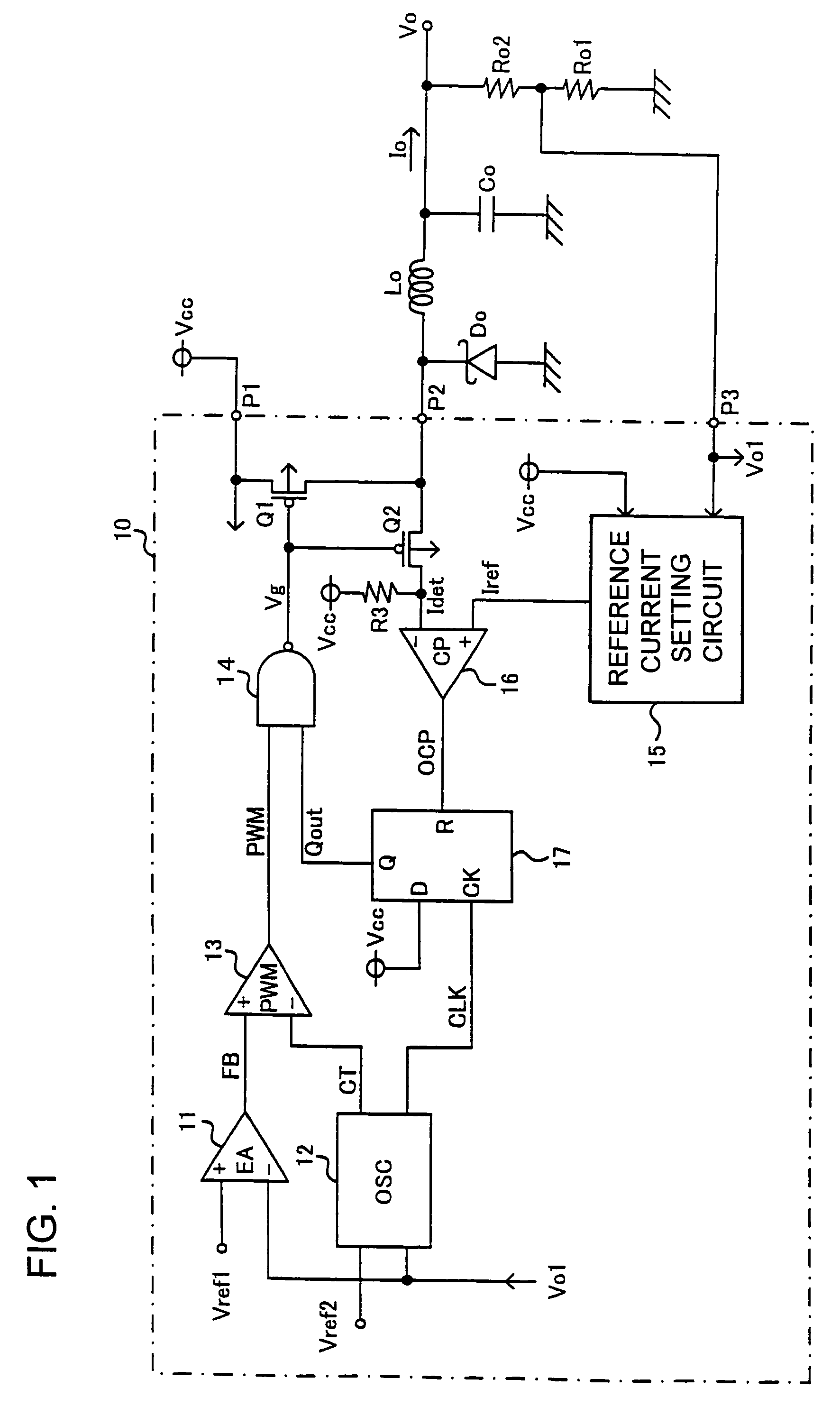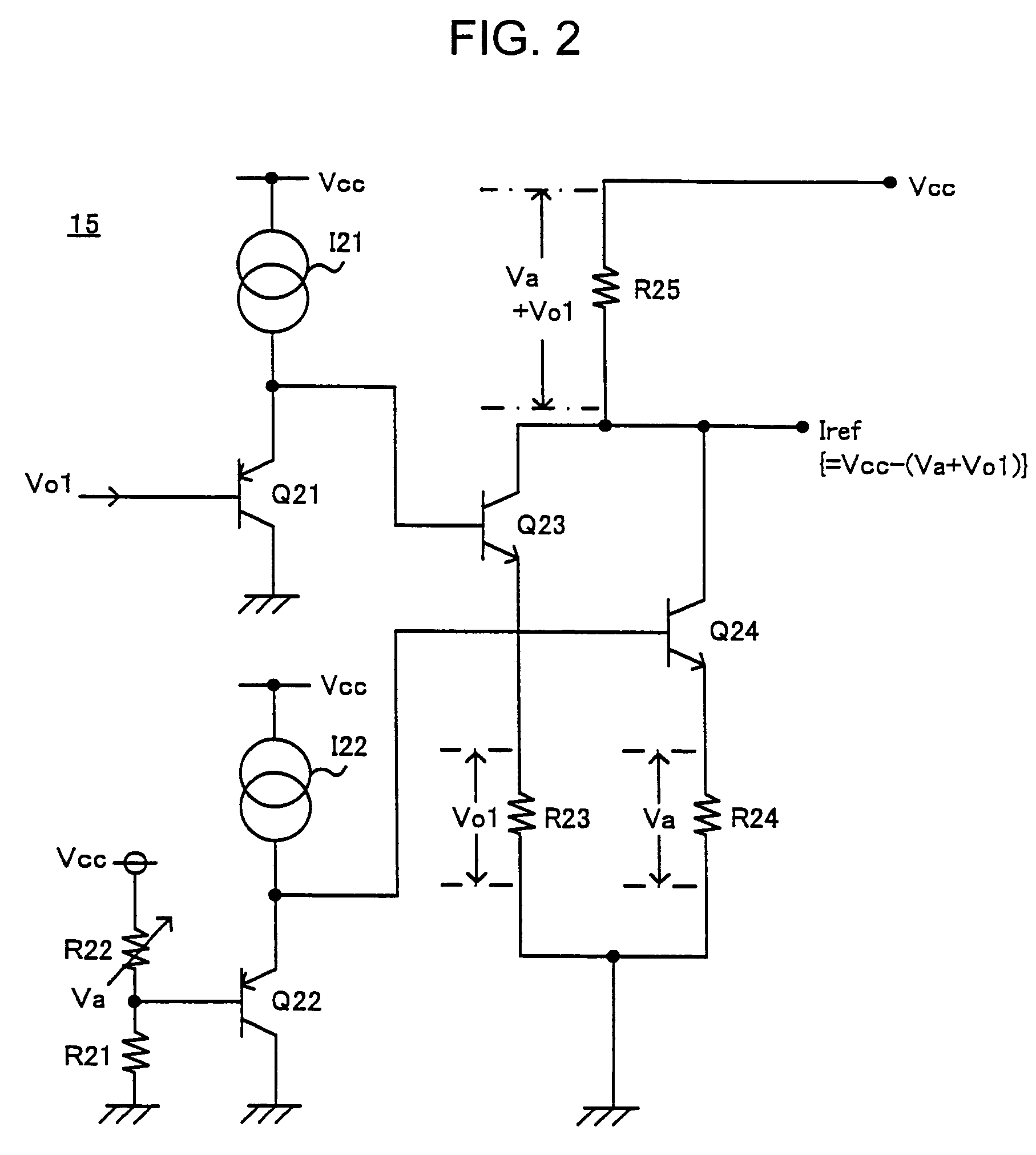Switching type dc-dc converter for generating a constant output voltage
- Summary
- Abstract
- Description
- Claims
- Application Information
AI Technical Summary
Benefits of technology
Problems solved by technology
Method used
Image
Examples
first embodiment
[0032]The invention will now be described by way of example with reference to accompanying drawings. FIG. 1 is a diagram showing the structure of a switching type dc-dc converter in accordance with the invention. FIG. 2 is a diagram showing a specific example of a reference current level setting circuit. FIG. 3 is a diagram showing a specific example of an oscillation circuit. FIG. 4 is a timing diagram illustrating the operation of an inventive dc-dc converter.
[0033]Referring to FIG. 1, there is shown an IC 10 having a first input terminal P1 receiving a dc power supply voltage Vcc. The inputted dc supply voltage Vcc is outputted from the second terminal P2 of the dc-dc converter when a switching transistor Q1 is turned on, but is cut off otherwise, depending on a gate control signal Vg supplied to the gate thereof. The switching transistor Q1 constituting the switching transistor circuit can be a P-type MOS transistor. In what follows, voltages represent potentials relative to the...
second embodiment
[0071]FIG. 5 shows a configuration of a switching type dc-dc converter in accordance with the invention.
[0072]The reference current level setting circuit 15A of FIG. 5 is adapted to provide a fixed reference current level setting voltage Iref irrespective of the magnitude of the output voltage Vo. Configurations of other components are the same as those of the first embodiment shown in FIG. 1.
[0073]In this example, too, if the output voltage Vo falls down to the predetermined voltage Vref2 during an over-current protective operation, the frequency of the oscillation circuit 12 will be lowered accordingly, thereby reducing the output current Io as desired. As a result of this reduction of the oscillation frequency of the oscillation circuit 12, a characteristic fold-back current limiting scheme is attained during the over-current protective operation.
PUM
 Login to View More
Login to View More Abstract
Description
Claims
Application Information
 Login to View More
Login to View More - R&D
- Intellectual Property
- Life Sciences
- Materials
- Tech Scout
- Unparalleled Data Quality
- Higher Quality Content
- 60% Fewer Hallucinations
Browse by: Latest US Patents, China's latest patents, Technical Efficacy Thesaurus, Application Domain, Technology Topic, Popular Technical Reports.
© 2025 PatSnap. All rights reserved.Legal|Privacy policy|Modern Slavery Act Transparency Statement|Sitemap|About US| Contact US: help@patsnap.com



